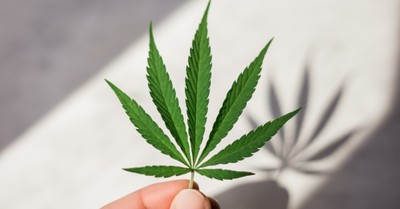Regular Energy Drink Use by Young Adults May Hike Risk of Substance Abuse
-
Jim Liebelt Jim Liebelt's Blog
- Published Aug 30, 2017
*The following is excerpted from an online article posted on PsychCentral.
A new study by University of Maryland School of Public Health researchers suggests young adults who regularly consume highly caffeinated energy drinks may be at risk for future substance use.
Dr. Amelia Arria and colleagues with the Center on Young Adult Health and Development (CYAHD) found evidence that individuals who regularly consumed highly caffeinated energy drinks, and sustained that consumption over time, were significantly more likely to use cocaine, nonmedically use prescription stimulants (NPS), and be at risk for alcohol use disorder (AUD) at age 25.
Participants were recruited for the study while enrolled as college students, and were surveyed at regular intervals to track changes in various health and risk-taking behaviors, including energy drink consumption and drug use.
The study appears in the journal Drug and Alcohol Dependence.
“The results suggest that energy drink users might be at heightened risk for other substance use, particularly stimulants,” said Arria.
“Because of the longitudinal design of this study, and the fact that we were able to take into account other factors that would be related to risk for substance use, this study provides evidence of a specific contribution of energy drink consumption to subsequent substance use.”
Notably, more than half (51.4 percent) of the 1,099 study participants fell into the group with a “persistent trajectory,” meaning that they sustained their energy drink consumption over time.
Members of this group were significantly more likely to be using stimulant drugs such as cocaine and prescription stimulants non-medically and be at risk for alcohol use disorder at age 25.
The research singles out ED consumption as the contributory factor because they controlled for the effects of demographics, sensation-seeking behaviors, other caffeine consumption, and prior substance use at age 21.
Those in the “intermediate trajectory” group (17.4 percent) were also at increased risk for using cocaine and NPS relative to those in the “non-use trajectory” who never consumed energy drinks (20.6 percent).
Members of the “desisting trajectory” group (those whose consumption declined steadily over time) and the non-use group were not at higher risk for any substance use measures that were tested.
Unlike soft drinks, energy drinks remain unregulated by the FDA and are not subject to federal labeling requirements to list caffeine content or additional ingredients whose interaction with caffeine is not well understood.
Source: PsychCentral
https://psychcentral.com/news/2017/08/10/energy-drinks-in-youth-may-increase-risk-of-later-substance-use/124472.html

















